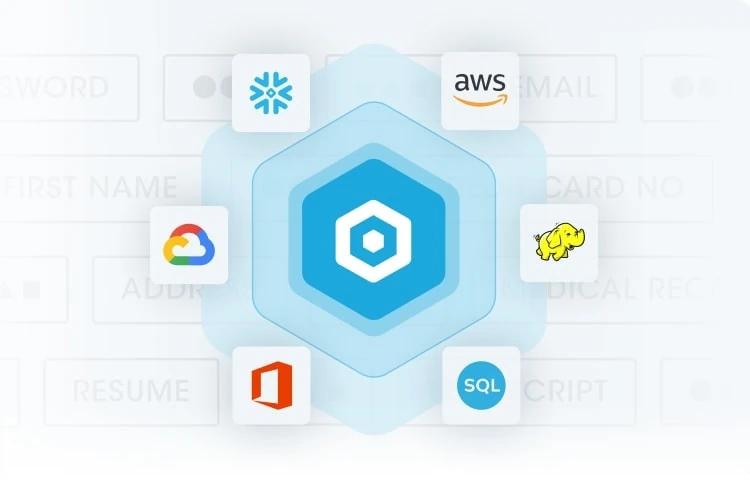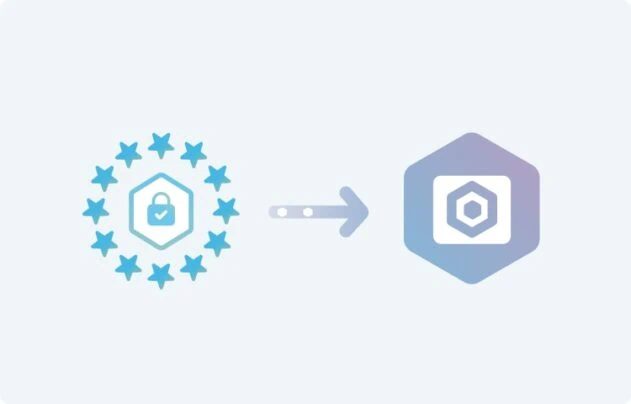Data is moving to the cloud, creating a new challenge for organizations to protect their consumers’ data stored. The first step to securing sensitive data in the cloud is sensitive data discovery. This article describes the types of cloud data migration and their advantages, security & privacy risks of cloud data migration, and why deep data discovery is essential to secure all sensitive data.
Types of Cloud Storage
Migrating a data warehouse to the cloud
A data warehouse is a large collection of an entire organization’s data. It stores data from multiple databases and is optimized for aggregation and retrieval of large data sets. Increasingly, organizations are opting to migrate their data warehouse from on-premise machines to the cloud. Migrating to the cloud helps organizations reduce costs, build the ability to scale quickly, improve security controls, and enhanced governance capabilities such as User Identity and Access Management (IAM) and analytics.
Migrating a data lake to the cloud
A data lake is a centralized repository that allows organizations to store all their structured and unstructured data at any scale. With a data lake, organizations can store data as-is without having first to structure the data. A data lake can store unstructured data from IoT devices, websites, mobile apps, social media, and corporate applications.
Moving the data lake into the cloud has similar advantages to migrating a data warehouse to the cloud. However, a unique advantage of having the data lake in the cloud is that organizations can run different types of analytics—from dashboards and visualizations to big data processing, real-time analytics, and machine learning to guide better decisions.
File share and collaboration to cloud
Cloud collaboration brings several benefits to the organization, which traditional file sharing fails to convey. Besides improved security during data transfer, cloud collaboration can make editing and transferring files easier, offer a real-time response, and improve brainstorming.
Migrating data to the cloud can increase performance, scalability, and cost benefits. While the cloud undoubtedly brings several advantages, migrating data to the cloud requires planning & preparation, keeping in mind all the data privacy requirements.
Many privacy laws like the CCPA and GDPR have imposed strict data sharing requirements on organizations. These requirements aim to protect organizations from potential privacy and security risks that might emanate after the cloud migration process is complete and protect consumers’ personal data. Let’s explore some of the major types of risk.
Privacy Risks
According to market estimates, the global cloud computing market is set to grow at a CAGR of 18%, making its value USD 623.3 billion by 2023. Most major privacy regulations have specific guidelines on data sharing as well as cross-border data transfers. For instance, organizations are required to assess the security posture of a third-party vendor before transferring any personal data and leverage contractual agreements to protect transferred personal data.
Security Risks
Transferring data from legacy infrastructure to cloud storage can come with a myriad of security concerns. These concerns can range from insider threats where the authorization of access is abused to accidental errors from employees, external attacks in the form of malware, misconfiguration within servers, and problems on the cloud provider’s side. Any of these can lead to compliance breaches which can result in heavy fines and penalties. A recent case study by IBM X-Force IRIS showed that cloud-based applications are severely prone to cyber-attacks and cybercriminals exploit cloud applications more than any other platform. Another study by IBM showed that 21% of data stored in cloud storage is sensitive data of the consumer, which can be detrimental in case of a breach in the system.
Consequences of not mitigating Cloud Storage Security & Privacy Risks
Lax security controls make organizations vulnerable to data breaches. Data breaches can severely damage an organization’s reputation, decimate customer trust, and expose them to severe legal penalties from regulators. In some jurisdictions, impacted individuals can file civil lawsuits against the organization as well.
Why Deep Data Discovery is essential
During the deep data discovery exercise, the organization needs to make sure that specific steps are performed. A good data discovery solution should help you:
- Detects shadow & native data assets across major cloud service providers and extract them into an asset catalog.
- Classify sensitive data elements in multi-cloud and self-managed structured and unstructured data systems.
- Visualize the distribution of sensitive data elements.
- Synchronize with any third-party data catalogs to populate metadata.
- Build a relationship map between discovered personal data and its owners.
- Enable timely fulfillment of DSRs, breach notifications, and consent report.
- Detect security posture and misconfigurations.
- Assess data security risks.
- Identify data risk hotspots in your environment.











